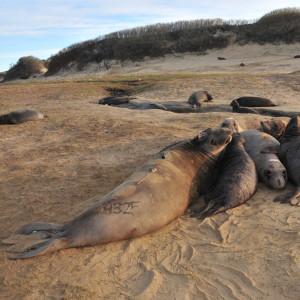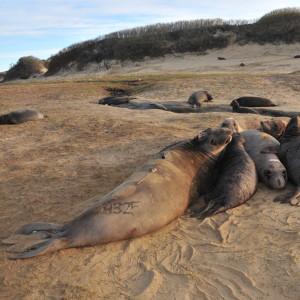Wildlife Tagging Sparks Funding for Energy-Harvesting Sensors
November 15, 2015

The National Science Foundation (NSF) has awarded a mechanical engineering professor in Arizona a grant to develop energy-harvesting sensors for tracking wildlife.
Michael Shafer, assistant professor of mechanical engineering at Northern Arizona University (NAU), has been awarded a $634,000 grant from the NSF to develop sensors that use environmental conditions and elements to derive energy for themselves. The sensors will be used in GPS tags to monitor wildlife, beginning with elephant seal research, according to NAU. Scientists place these tags on animals so they can observe their activities and environments.
Sensors are one of the best use-cases for energy-harvesting power sources because they are often too small for conventional batteries and need to run for long periods of time without recharging.

This is especially true in wildlife research, where tracking animals with sensor-based tags is common and research often is limited by the sensors' short battery lifespans or because data is stored on a memory chip and needs to be retrieved from the animal. Having sensors that don't require batteries and can communicate wirelessly with other systems would be a boon for this type of research, Schafer said.
Schafer and his team are exploring a number of transduction methods to provide supplemental energy to the tags, he said in an article on the NAU website. One of the methods is solar power, while another would be to harness the power of motion -- namely, the movements of elephant seals as they swim and dive in the ocean, Schafer said.
The latter could provide some serious amounts of energy, given the heft, agility, and endurance of elephant seals. They can weigh up to 8,800 lb and regularly travel 2,620 miles between the central California coast and Alaska's Aleutian Islands.
READ MORE ARTICLES ON ENERGY HARVESTING:
Schafer said his team is exploring more than one technology for the tags because it's not a one-size-fits-all solution. "One solution is not going to work for all animals, so we are interested in finding one or two technologies that can work over a broad spectrum of species and provide the most usability," he said in the article.
Members of Schafer's team include Paul Flikkema, professor of electrical engineering and computer science at NAU, as well as graduate and undergraduate students. The group also will collaborate with the University of California, Santa Cruz, a coastal university with a long history of marine mammal research.
Elizabeth Montalbano is a freelance writer who has written about technology and culture for more than 15 years. She has lived and worked as a professional journalist in Phoenix, San Francisco, and New York City. In her free time she enjoys surfing, traveling, music, yoga, and cooking. She currently resides in a village on the southwest coast of Portugal.
Like reading Design News? Then have our content delivered to your inbox every day by registering with DesignNews.com and signing up for Design News Daily plus our other e-newsletters. Register here!

Design News will be in Orlando in November! Design & Manufacturing South will be in Orlando Nov. 18-19. Get up close with the latest design and manufacturing technologies, meet qualified suppliers for your applications, and expand your network. Learn from experts at educational conferences and specialty events. Register today for our premier industry showcase in Orlando.
About the Author(s)
You May Also Like

.jpg?width=300&auto=webp&quality=80&disable=upscale)

